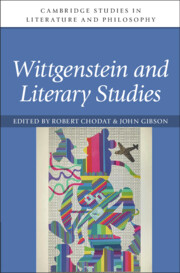Plato's banishment of the poets didn't prevent a number of subsequent thinkers, over an enormous period of time, from drawing intimate connections between literature and philosophy. “Poetry,” said Aristotle – by “poetry” he meant “the making of plot-structures” – “is both more philosophical and more serious than history, since poetry speaks more of universals, history of particulars.” Philosophy and poetry involve comparable sorts of knowledge: they investigate kinds or types of characters and actions, and thus provide, for Aristotle, a key to the world's purposeful order. For the romantics and idealists at the end of the eighteenth century, purposeful orders belonged less to the world than to the generative human mind. But while this shift in emphasis represented a critical moment in the history of Western thought, it led them nevertheless to suggest, like Aristotle, that literature plays a central role in human understanding. “Only poetry,” said Friedrich Schlegel, approaches “the sublime urbanity of the Socratic muse,” and in the “The Oldest System-Program of German Idealism” (1796) we find the claim – attributed variously to Hölderlin, Hegel, Schelling, or all three of them – that “the supreme act of reason” is an “aesthetic act.” Via Coleridge, Carlyle, and others, such ideas receive their American expression in Emerson, for whom “the true philosopher and the true poet are one,” each assigning “the apparent order and relations of things to the empire of thought.”
On the face of it, no new Athens or Jena or Concord arose in American culture in the half-century after World War I, and the ancient quarrel between literature and philosophy seems to have grown as heated as Plato wished.




